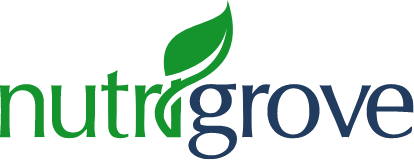How do you cope with hypertension?
Hypertension, or high blood pressure, is a common health condition that affects millions of people worldwide. It can have serious consequences if left untreated, including damage to vital organs such as the heart and kidneys.
Fortunately, there are various strategies and techniques that can help you effectively cope with hypertension, manage your blood pressure levels, and improve your overall health. From lifestyle modifications to medication and treatment options, there are numerous ways to keep your blood pressure under control and live a healthy, fulfilling life.
Key Takeaways:
- Coping with hypertension is crucial for maintaining good health
- Lifestyle modifications such as a healthy diet and regular exercise can help manage blood pressure levels
- Medication and treatment options may be necessary for some individuals
- Diet and stress management techniques can also play a significant role in hypertension management
- Having a supportive environment and regular check-ups are important for effective hypertension management
Understanding Hypertension
Hypertension, also known as high blood pressure, is a common medical condition characterized by elevated blood pressure in the arteries. Blood pressure is the force of blood pushing against the walls of the arteries as the heart pumps blood throughout the body.
A normal blood pressure reading is typically around 120/80 mmHg. However, when blood pressure consistently measures at 130/80 mmHg or higher, it is considered hypertension.
Hypertension Definition
Hypertension is a chronic condition that can lead to serious health complications, such as heart disease, stroke, and kidney damage. It is important to manage hypertension to prevent these potential complications from arising.
High Blood Pressure
High blood pressure can occur due to a variety of factors, including genetics, obesity, unhealthy lifestyle choices, and certain medical conditions. It is often referred to as the "silent killer" because it typically does not present any symptoms until it has reached a severe stage.
Risk Factors
There are several risk factors associated with hypertension, including age, family history, smoking, excessive alcohol consumption, physical inactivity, and unhealthy diet. It is important to be aware of these risk factors and make lifestyle modifications to reduce the likelihood of developing hypertension.
Lifestyle Modifications for Hypertension
Making lifestyle changes is essential for managing hypertension. A healthy diet, regular exercise, and stress management techniques are all crucial elements of managing high blood pressure levels.
Healthy Diet
A healthy diet is one of the most important lifestyle modifications for managing hypertension. The DASH (Dietary Approaches to Stop Hypertension) diet is a popular and effective approach to managing blood pressure. This diet emphasizes fruits, vegetables, whole grains, lean proteins, and low-fat dairy products. It also recommends reducing sodium intake and limiting processed and high-fat foods.
It's important to work with a healthcare professional to create a personalized diet plan that meets your individual needs and preferences.
Regular Exercise
Regular physical activity can also help manage blood pressure levels. The American Heart Association recommends at least 150 minutes of moderate-intensity aerobic exercise per week, such as brisk walking, cycling, or swimming. Resistance training with weights or bodyweight exercises can also be beneficial.
It's important to start slowly and gradually increase the intensity and duration of exercise. Working with a healthcare professional or certified fitness trainer can ensure a safe and effective exercise plan.
Stress Management Techniques
Stress can significantly impact blood pressure levels, so incorporating stress management techniques into your daily routine is essential for managing hypertension. Relaxation exercises such as deep breathing, meditation, or yoga can help reduce stress. Mindfulness practices, such as focusing on the present moment, can also help reduce stress.
Engaging in hobbies and leisure activities can also help manage stress levels. Finding time for activities that you enjoy, such as reading, gardening, or spending time with friends and family, can help improve overall well-being.
Medication and Treatment Options
While lifestyle modifications play a significant role in managing hypertension, some individuals may require antihypertensive medications and prescribed treatments. It is important to work closely with your healthcare team to find the right medication and treatment plan based on your individual needs.
Antihypertensive Medications
Antihypertensive medications are drugs used to lower high blood pressure. These medications work in different ways to relax blood vessels, decrease blood volume, or reduce the amount of hormones that affect blood pressure.
Common antihypertensive medications include:
- Diuretics: These drugs help your body get rid of excess water and salt to reduce blood volume.
- Beta blockers: These drugs slow your heart rate and reduce the workload on your heart.
- ACE inhibitors: These drugs relax blood vessels and decrease the amount of hormones that constrict blood vessels.
- ARBs: These drugs work similarly to ACE inhibitors to relax blood vessels.
- Calcium channel blockers: These drugs relax blood vessels and decrease the workload on your heart.
Prescribed Treatments
In addition to medications, your healthcare provider may recommend other treatments to manage your hypertension. These treatments may include:
- Lifestyle changes, such as a healthy diet and regular exercise
- Weight loss
- Reducing alcohol consumption
- Quitting smoking
- Monitoring and managing other health conditions
Monitoring Blood Pressure
It is important to regularly monitor your blood pressure to ensure that it is within normal range. Your healthcare provider may recommend that you monitor your blood pressure at home and keep a record of your readings to share with your healthcare team.
Additionally, it is important to attend all scheduled appointments with your healthcare provider to monitor your blood pressure and ensure that your medication and treatment plan is working effectively.
The Role of Diet in Hypertension Management
Diet plays a crucial role in managing hypertension. The DASH (Dietary Approaches to Stop Hypertension) diet is a popular eating plan that can help lower blood pressure levels. The diet emphasizes consuming whole foods that are rich in nutrients and low in sodium.
The DASH Diet
The DASH diet encourages consuming plenty of fruits, vegetables, whole grains, lean proteins, and low-fat dairy products. It also recommends reducing the intake of saturated and trans fats, sweets, sugary drinks, and high-sodium foods.
Following a DASH-style eating plan can significantly lower blood pressure levels. According to the American Heart Association, consuming a DASH diet can reduce systolic blood pressure by up to 11 points and diastolic blood pressure by up to six points.
Sodium Intake
Sodium is a mineral that is essential for the body to function properly. However, consuming too much sodium can increase blood pressure levels and put individuals at risk of developing hypertension. The American Heart Association recommends limiting sodium intake to no more than 2,300 milligrams per day.
To reduce sodium intake, individuals can choose low-sodium alternatives when grocery shopping, limit the use of salt in cooking, and avoid processed and packaged foods that are high in sodium.
Potassium-Rich Foods
Consuming foods that are rich in potassium can help lower blood pressure levels. Potassium is a mineral that helps regulate fluid balance in the body and counteracts the negative effects of sodium.
Some potassium-rich foods include bananas, sweet potatoes, spinach, avocados, and beans. Incorporating these foods into the diet can help lower blood pressure levels and improve overall health.
Stress Management Techniques
Stress is an inevitable part of life, but managing it effectively is crucial when coping with hypertension. Here are some relaxation exercises, mindfulness practices, hobbies, and leisure activities that can help reduce stress:
1. Relaxation Exercises
Deep breathing, progressive muscle relaxation, and visualization techniques are effective relaxation exercises that can help reduce stress and lower blood pressure levels. Deep breathing involves taking slow, deep breaths and exhaling slowly to calm the body. Progressive muscle relaxation involves tensing and releasing muscle groups to release tension in the body. Visualization techniques involve imagining peaceful, calming scenes to help relax the mind and body.
2. Mindfulness
Mindfulness is the practice of being present in the moment, without judgment. By focusing on the present moment, you can reduce stress and improve your overall well-being. Mindfulness practices include meditation, yoga, and tai chi. These practices help you to become more self-aware and in control of your thoughts and emotions.
3. Hobbies and Leisure Activities
Engaging in hobbies and leisure activities that you enjoy can also help reduce stress and improve your overall health. Consider activities that promote relaxation, such as reading, listening to music, gardening, or taking a warm bath. Participating in group activities, such as playing sports or taking a dance class, can also help you to connect with others and reduce stress.
By incorporating these relaxation exercises, mindfulness practices, hobbies, and leisure activities into your daily routine, you can effectively manage stress and improve your overall well-being.
Maintaining a Supportive Environment
Having a supportive environment is crucial when coping with hypertension. Managing blood pressure levels requires a collaborative effort with family, friends, and healthcare professionals. Here are some ways to maintain a supportive environment:
Family Support
Family support is essential for individuals with hypertension. It is crucial to educate your family members and close friends about your condition and the importance of monitoring your blood pressure levels. Your loved ones can provide encouragement, help you manage stress, and motivate you to make lifestyle changes such as diet and exercise. Having the support of your family and friends can significantly improve your overall well-being.
Building a Reliable Healthcare Team
Building a reliable healthcare team is vital for individuals with hypertension. Your healthcare team should consist of your primary care physician, specialists, and other medical professionals. It is essential to maintain regular visits to your healthcare providers, adhere to prescribed treatments, and monitor your blood pressure levels at home regularly. Your healthcare team can provide you with the necessary tools to manage your hypertension effectively.
The Significance of Regular Check-ups
Regular check-ups are essential for individuals with hypertension. During these visits, your healthcare provider will assess your overall health and blood pressure levels. Regular check-ups can help detect changes in your blood pressure levels, which can help prevent complications associated with hypertension. It is crucial to communicate any changes in your health or symptoms to your healthcare provider immediately.
Overall, it is essential to maintain a supportive environment when coping with hypertension. Having a supportive network of family, friends, and healthcare professionals can significantly improve your overall well-being and help you manage your blood pressure levels effectively.
FAQ
How do I cope with hypertension?
Coping with hypertension involves managing your blood pressure levels and improving your overall health. This can be achieved through lifestyle modifications, medication and treatment options, and maintaining a supportive environment.
What is hypertension?
Hypertension, also known as high blood pressure, is a condition characterized by elevated blood pressure levels. It is important to understand the definition of hypertension and the risk factors associated with this condition.
What lifestyle modifications can help with hypertension?
Adopting a healthy diet, engaging in regular exercise, and incorporating stress management techniques are crucial for managing hypertension. These lifestyle modifications can have a positive impact on your blood pressure levels.
Are there medications and treatments available for hypertension?
While lifestyle changes are important, some individuals may require medication and specific treatments to manage hypertension. It is important to explore common antihypertensive medications, treatment options, and the importance of regularly monitoring your blood pressure.
How does diet affect hypertension management?
Diet plays a vital role in managing hypertension. The DASH (Dietary Approaches to Stop Hypertension) diet, monitoring sodium intake, and incorporating potassium-rich foods into your meals can all help in managing blood pressure levels.
What are some stress management techniques for hypertension?
Stress can significantly impact blood pressure levels. Relaxation exercises, mindfulness practices, and engaging in hobbies and leisure activities are some effective stress management techniques that can help maintain a healthy balance.
How important is maintaining a supportive environment for hypertension management?
Having a supportive environment is crucial when coping with hypertension. Family support, building a reliable healthcare team, and regular check-ups all play a significant role in effectively managing your blood pressure levels.





